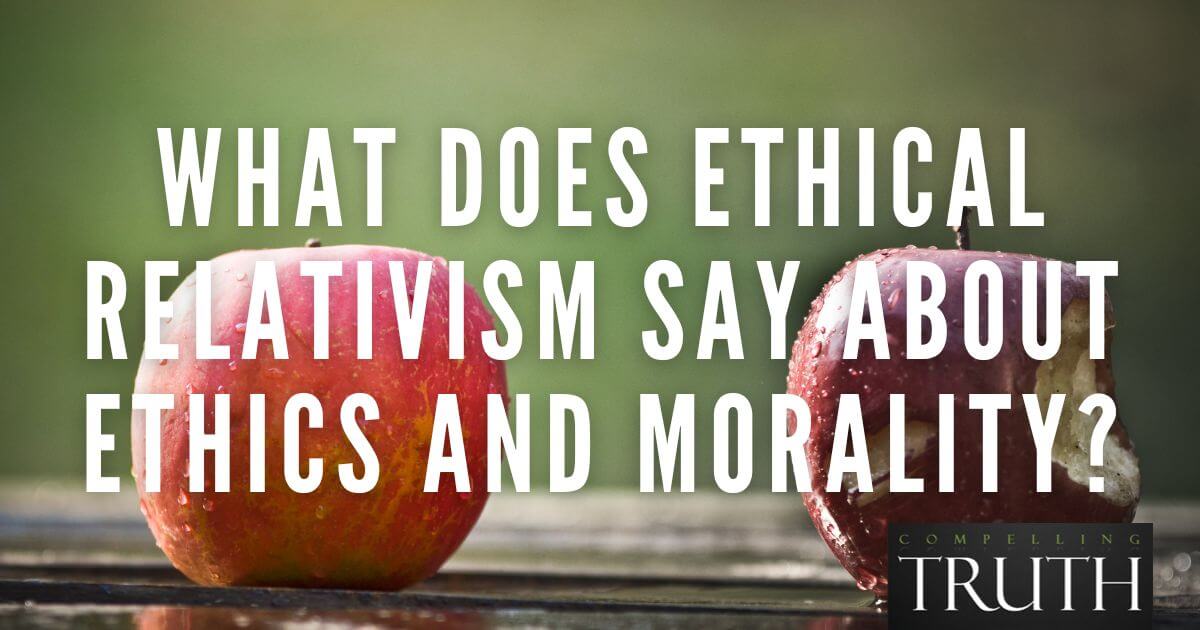The divine command theory is one of many philosophies of morality and moral behavior. It is a sub-category of moral absolutism, which holds that humanity is subject to absolute standards that determine when acts are right or wrong. Moral absolutism, in turn, falls under the umbrella of deontological ethics, which teaches that actions are moral or not based on their adherence to given rules.
The divine command theory says that an act is moral if it follows the command of God. God's commands dictate right and wrong—what He says to do is right, and what He says not to do is wrong. Morality is not based on human intent or human nature or human character. And it is not based on the consequence of the action. It is based solely on what God says.
The great debate about divine command theory is called Plato's Euthyphro Dilemma: If God's word alone determines right and wrong, then He could say anything and it would be right. He could tell us to torture innocents and it would be the moral thing to do. But it is obvious that torturing innocents is wrong, no matter what God might say. So right and wrong, good and evil, must be absolutes independent of the existence of God. But if this is the case, then God is subject to good, which He can't be because He is God.
What the Euthyphro Dilemma does not address is the origin of the commands in question: the character of God. God wills and speaks out of His character, not arbitrarily. And His character has several qualities that by default ensure His Word is good:
Goodness - "Oh, taste and see that the LORD is good! Blessed is the man who takes refuge in him!" (Psalm 34:8)
Unchanging - "For I the Lord do not change; therefore you, O children of Jacob, are not consumed." (Malachi 3:6)
Benevolent - "Every good gift and every perfect gift is from above, coming down from the Father of lights with whom there is no variation or shadow due to change." (James 1:17)
Logical - "In the beginning was the Word ["Logos"], and the Word was with God, and the Word was God." (John 1:1)
Holy - "Holy, holy, holy, is the Lord God Almighty, who was and is and is to come!" (Revelation 4:8b)
Love - "Anyone who does not love does not know God, because God is love." (1 John 4:8)
God's words are absolute because His character is absolute. They are good because His character is good. His commands are for our benefit because it is only logical for Him to desire the life He created to continue. As God told the Israelites in Deuteronomy 12:28, "Be careful to obey all these words that I command you, that it may go well with you and with your children after you forever, when you do what is good and right in the sight of the Lord your God."
The divine command theory says that an act is moral if it follows the command of God. God's commands dictate right and wrong—what He says to do is right, and what He says not to do is wrong. Morality is not based on human intent or human nature or human character. And it is not based on the consequence of the action. It is based solely on what God says.
The great debate about divine command theory is called Plato's Euthyphro Dilemma: If God's word alone determines right and wrong, then He could say anything and it would be right. He could tell us to torture innocents and it would be the moral thing to do. But it is obvious that torturing innocents is wrong, no matter what God might say. So right and wrong, good and evil, must be absolutes independent of the existence of God. But if this is the case, then God is subject to good, which He can't be because He is God.
What the Euthyphro Dilemma does not address is the origin of the commands in question: the character of God. God wills and speaks out of His character, not arbitrarily. And His character has several qualities that by default ensure His Word is good:
Goodness - "Oh, taste and see that the LORD is good! Blessed is the man who takes refuge in him!" (Psalm 34:8)
Unchanging - "For I the Lord do not change; therefore you, O children of Jacob, are not consumed." (Malachi 3:6)
Benevolent - "Every good gift and every perfect gift is from above, coming down from the Father of lights with whom there is no variation or shadow due to change." (James 1:17)
Logical - "In the beginning was the Word ["Logos"], and the Word was with God, and the Word was God." (John 1:1)
Holy - "Holy, holy, holy, is the Lord God Almighty, who was and is and is to come!" (Revelation 4:8b)
Love - "Anyone who does not love does not know God, because God is love." (1 John 4:8)
God's words are absolute because His character is absolute. They are good because His character is good. His commands are for our benefit because it is only logical for Him to desire the life He created to continue. As God told the Israelites in Deuteronomy 12:28, "Be careful to obey all these words that I command you, that it may go well with you and with your children after you forever, when you do what is good and right in the sight of the Lord your God."



